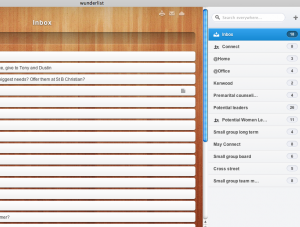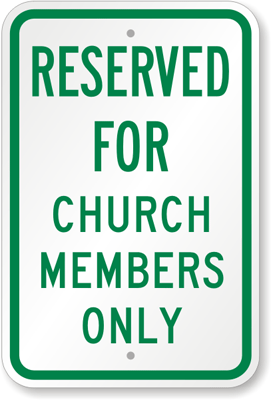You probably already know about Hootsuite as a Twitter client…and hopefully you use it. I do. See why HERE.
You also probably already have an RSS reader (see my explanation of what RSS is HERE). No? Then check out NetNewsWire (and my review HERE). I love how it syncs with my iPhone, and I can stay within the application to leave comments, ReTweet, and subscribe to new feeds.
But I want to tell you about a couple of software tools I’m using right now that are helping me to be more productive.
Productivity apps
Evernote – ![]() I use Evernote primarily for idea capture. When I have an idea I want to remember, I record it in Evernote. I used to use a Moleskine notebook to write things down…or whatever paper I found closest to me. But what kept happening is that I would lose the paper, or didn’t have my notebook with me when I needed it. Evernote is with me wherever I go…as long as I have my phone or computer with me…and it syncs up between my devices.
I use Evernote primarily for idea capture. When I have an idea I want to remember, I record it in Evernote. I used to use a Moleskine notebook to write things down…or whatever paper I found closest to me. But what kept happening is that I would lose the paper, or didn’t have my notebook with me when I needed it. Evernote is with me wherever I go…as long as I have my phone or computer with me…and it syncs up between my devices.
In addition to capturing ideas, I also use it when there’s a website or blog I need to go back and check later. I just click the Evernote icon that I have installed as a plugin for Google Chrome (details on how to do that HERE), the web browser I use.
Wunderlist – I use Wunderlist for ongoing task management.  Whenever I have a task, I just add it to Wunderlist. If I need a reminder, Wunderlist can send push notifications to my phone.
Whenever I have a task, I just add it to Wunderlist. If I need a reminder, Wunderlist can send push notifications to my phone.
I have my lists divided up into the various areas that I am responsible for at work. Each area has its own list. So over the course of time, whether leading up to meetings or for projects I’m working on, I just add them to the list and don’t have to worry about forgetting to talk about it in the next meeting.
I can also share my lists, and have others collaborate on them, by clicking the icon and sending collaborators an email. And when we make a change, it’s reflected on everybody’s lists.
The great news is that both of these applications are free cross-platform. Meaning that they’re free as a desktop client or a mobile application.
Which means that you have no good excuse to not give these a shot.
Are there tools you’re using right now that are helping you be more productive?













